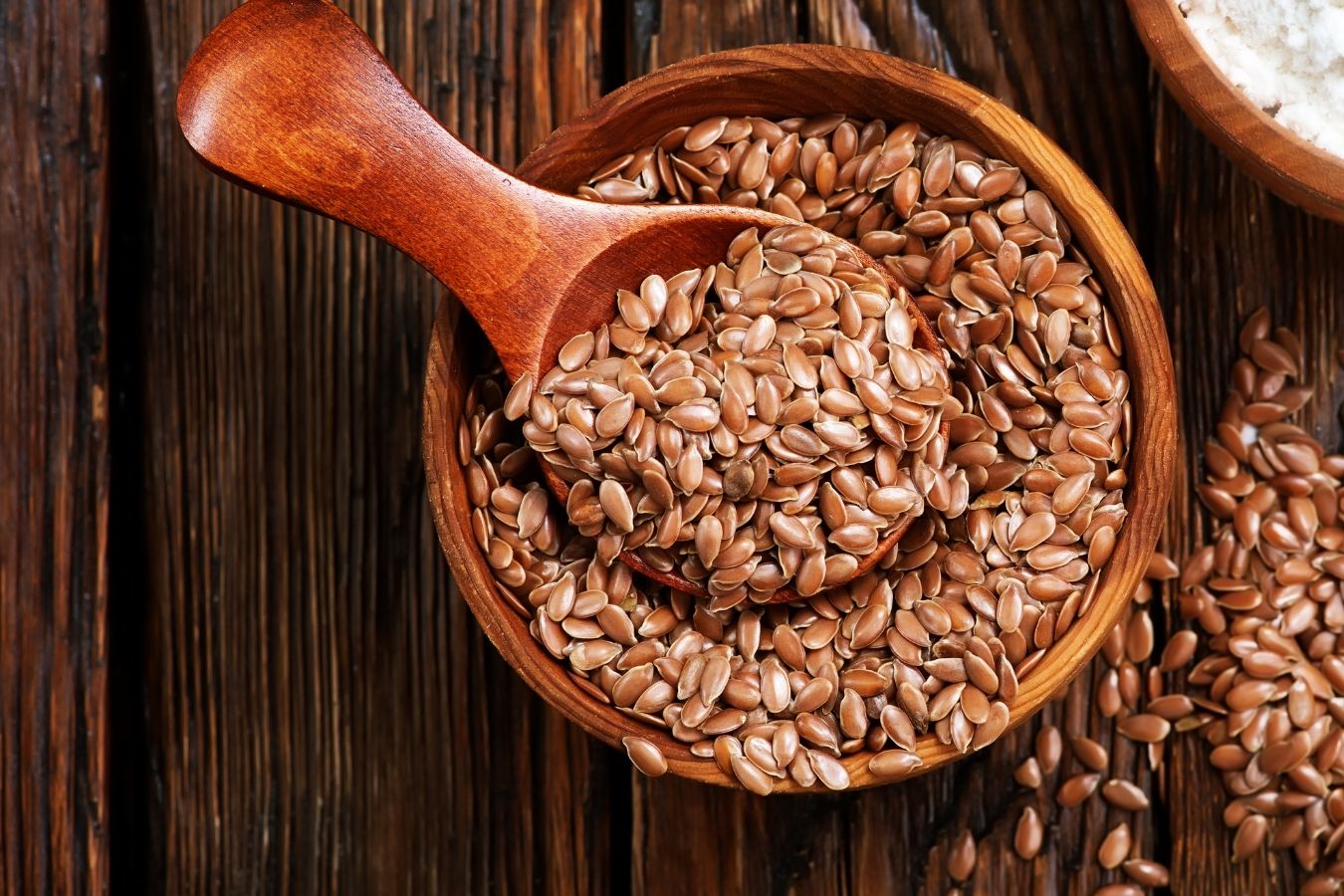Nutritional Benefits Of Flax Seeds
Nutritional Benefits Of Flax Seeds – Flax, or Linum usitatissimum, is a plant that grows to a height of about two feet and produces flaxseed. Probably first grown in Egypt, it is now a global crop. The fibers from the flax plant are two to three times stronger than those from cotton, thus it may be woven into linen! The plant was mostly cultivated for garment production when it originally arrived in North America. However, by the middle of the 20th century, cotton had become the preferred fiber in the US, thus now, the majority of flax farms in North America grow it for its seeds. If you are looking Nutritional Benefits Of Flax Seeds, then stay connected with us.

What Is Flax Seeds?
Flax seeds, scientifically known as Linum usitatissimum, are small, golden, or brown seeds extracted from the flax plant. They have been an integral part of human diets for thousands of years and are widely recognized for both their versatility in cooking and their numerous health benefits. Fiber, lignans, omega-3 fatty acids, and a range of vitamins and minerals can all be obtained from flax seeds. Flax seeds have a high concentration of lignans, a type of polyphenol with antioxidant qualities. Lignans may have anti-cancer properties; this is particularly true for malignancies related to hormones, such as breast and prostate cancer. They may also help regulate hormone levels in the body.
Flax seeds are a popular source of omega-3 fatty acids, specifically alpha-linolenic acid (ALA), which has several health benefits. Omega-3 fatty acids are essential for maintaining brain function, lowering inflammation, and maintaining heart health. Rich in flax seeds, ALA can help reduce blood pressure, cholesterol, and the risk of blood clots, all of which are factors in cardiovascular disease.
Nutritional Benefits Of Flax Seeds
Flax seeds, scientifically known as Linum usitatissimum, have gained immense popularity in recent times owing to their remarkable nutritional composition and multiple health benefits. Often referred to as superfoods, these tiny seeds are rich in nutrients and good for your overall health. In this session, we will go over the nutritional benefits of flax seeds in-depth, along with their composition and how they improve various aspects of human health.
- Blood Sugar Regulation – Flax seeds’ fiber and good fats can aid in blood sugar regulation. Because the soluble fiber reduces the rate at which sugar is absorbed, blood glucose levels are not quickly spiked. Those who already have diabetes or are at risk of getting it will benefit most from this.
- Cancer Prevention – Flax seeds contain lignans, a special kind of bioactive molecule that has been linked to a lower risk of developing several cancers. Antioxidant qualities found in lignans may aid in scavenging dangerous free radicals and averting cellular damage. According to research, lignans may offer protection against colon, prostate, and breast cancers.
- Bone Health – Minerals that are vital for bone development and health, such as calcium, magnesium, and phosphorus, can be found in flax seeds. These minerals support healthy bones and may help lower the incidence of fractures and osteoporosis, particularly in older people.
- Brain Health and Cognitive Function – Healthy brain development and cognitive performance depend on omega-3 fatty acids like ALA. They may lessen the chance of developing neurodegenerative illnesses like Alzheimer’s and Parkinson’s, enhance brain structure, and augment brain development. An improved general state of cognition and brain health can be achieved by including flax seeds in the diet.
- Heart Health – The ability of flax seeds to improve cardiovascular health is highly regarded. Omega-3 fatty acid ALA, which is abundant in flax seeds, has been associated with improved heart health and a reduction in inflammation. In the end, omega-3 fatty acids maintain a healthy heart and minimize the risk of cardiovascular disorders by lowering blood pressure, cholesterol, and the formation of blood clots.
- Weight Management – Flax seeds provide a wonderful combination of fiber, healthy fats, and protein, making them an ally in weight management. Protein promotes feelings of fullness, aids in portion control, and lowers caloric consumption in general. By controlling hunger and cravings, the fiber content helps with weight management by facilitating the maintenance of a healthy weight.
Nutritional and Health Uses
- Menopausal Symptoms Relief – Menopausal symptoms like hot flashes and nocturnal sweats may be lessened by the estrogen-like qualities of the lignans found in flax seeds. According to research, women going through menopause may benefit from consuming flax seeds in their diet.
- Dietary Fiber Supplement – A great source of dietary fiber, both soluble and insoluble, is flax seeds. A diet rich in flax seeds promotes regular bowel movements, improves digestion, and may help control blood sugar and weight.
- Cholesterol Management – Flax seeds’ high fiber and omega-3 fatty acid content may help reduce cholesterol, especially low-density lipoprotein (LDL) cholesterol. This can enhance cardiovascular health and lower the risk of heart disease.
- Omega-3 Fatty Acids Supplement – Alpha-linolenic acid (ALA), a kind of omega-3 fatty acid, is abundant in flax seeds. Frequent use of flax seeds can assist people in fulfilling their needs for omega-3 fatty acids, which can improve heart health, and cognitive function, and reduce inflammation.
- Inflammation – Fitzpatrick notes that two elements of flaxseed, lignans and ALA, may help prevent the release of some pro-inflammatory chemicals, which may help lessen inflammation that is associated with certain conditions (including Parkinson’s disease and asthma). It has been demonstrated that ALA reduces inflammatory responses in people. Additionally, lignans have been shown in animal experiments to lower levels of a number of pro-inflammatory chemicals.
Conclusion
Flax seeds are a real superfood because of their abundant nutritional content and wide range of uses. Flax seeds have a wide range of remarkable applications, from boosting health and wellness to increasing culinary creations and aiding several sectors. Flax seeds are a fantastic complement to a sustainable and health-conscious lifestyle, whether you use them in beauty procedures or add them to your meals for extra nutrients.
Frequently Asked Questions (FAQ)
Question 1. Is flaxseed good for weight loss?
Answer. Due to its high fiber content, including flaxseed in your diet can help you lose weight. Because foods high in fiber encourage feelings of fullness and satisfaction, including flaxseed in your diet may result in you eating less and losing weight.
Question 2. What does flaxseed do to your body?
Answer. High in fiber and beneficial omega-3 fatty acids, flaxseed is a terrific food. The most well-known use for it is to help with digestion, but it can also increase insulin sensitivity, decrease cholesterol, and even prevent some cancers.




